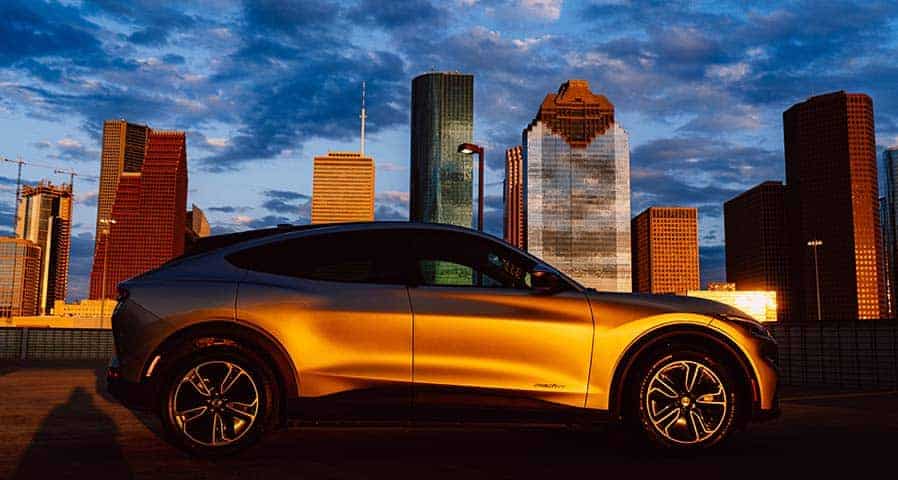While the majority of vehicles on the road in the U.S. still have internal combustion engines (ICE), the number is decreasing. Internal combustion engine bans are coming as more countries, states, and cities, are making the gradual switch to electric vehicles.
Soon EVs will outnumber fossil fuel-powered vehicles, and the charging infrastructure needs to be ready.
The ICE Ban Timeline is Changing
The ban on internal combustion engines is quickly approaching as EV sales keep climbing. Ernst & Young LLP predicts by 2033, EV sales in China, Europe, and the United States will surpass those for gas-powered vehicles. By 2045, non-electric vehicles will only account for one percent of car sales.
There are a lot of questions surrounding electric vehicles and EV charging stations. We have an extensive knowledge-based blog feed that walks you through everything you need to know about EV charging. If you would like to speak with an EV charger specialist you can schedule a call that fits your needs by clicking the button below.
ICE Car Ban – What are the Dates and Who is Setting Them?
The dates to ban internal combustion engines are constantly changing as more countries announce and reach goals. Here’s a quick look at where some of the countries are and when their ICE ban goes into effect.
The United States 2030
The U.S. doesn’t have a binding date for an ICE ban, but the Biden administration is supporting the transition to electric vehicles. As of July 2021, the administration is working with vehicle manufacturers on ways to meet these goals. The goal is for 50% of vehicles sold in the U.S. to be fully electric by 2030.
Denmark and the U.K. 2030/2035
Denmark and the U.K. are following the same plan to phase out internal combustion engines. The first part of the countries’ goal is to stop selling gas and diesel-powered vehicles by 2030. Hybrid sales are not affected by the ICE car ban in 2030, but by 2035 the countries will only allow the sales of zero-emission vehicles.
Canada 2035
Canada is following the same plan as the United Kingdom. The ICE ban takes effect in 2035 when sales of new cars and light-duty trucks are prohibited unless they are fully electric.
Thailand 2035
Thailand’s Energy Minister recognizes the country must keep up with the global community, and they are implementing plans to make it happen. Purchase bonuses and tax incentives are offered to consumers that buy electric vehicles.
The United States
Some U.S. states and cities are enacting their ban on internal combustion engines without support from the federal government if necessary. Unlike the United States’ non-binding deadlines, states like California and Massachusetts have their own ban date.
California 2035
The state’s governor signed an executive order in 2020 requiring all new cars and passenger trucks be zero-emission vehicles by 2035. It is a gradual phase-out plan giving drivers plenty of time to upgrade to an EV.
Massachusetts 2035
Massachusetts is following California’s plan by setting a binding date of 2035, banning the sale of non-zero emission vehicles. It is part of the statewide plan for decarbonization by 2050.
Did you know we have a dedicated EV newsletter that goes out once a month? The EV Action Report covers the latest EV news from around the world. To learn more about our email subscription policies go here, and you can subscribe now by clicking the button below!
Vehicle Manufacturers’ Timelines
Automobile manufacturers are making the changes necessary to keep up with state, federal, and global timelines. The manufacturers with dates for all-electric vehicles are
- Jaguar by 2025
- Volvo by 2030
- GM, Audi, and Volkswagen by 2035
- Honda by 2040
- Mazda, Mitsubishi, and Nissan by 2050
Internal Combustion Engine Ban – Final Thoughts
Things are quickly changing in the automotive industry as more bans on internal combustion engines are set. Expect big changes coming to the roads in the coming years, and you won’t be disappointed when electric vehicles are more common than fossil-fuel-powered ones.
To speak with an Apogee Charging Solutions EV charger specialist, call 484-816-2076, or email [email protected].








0 Comments